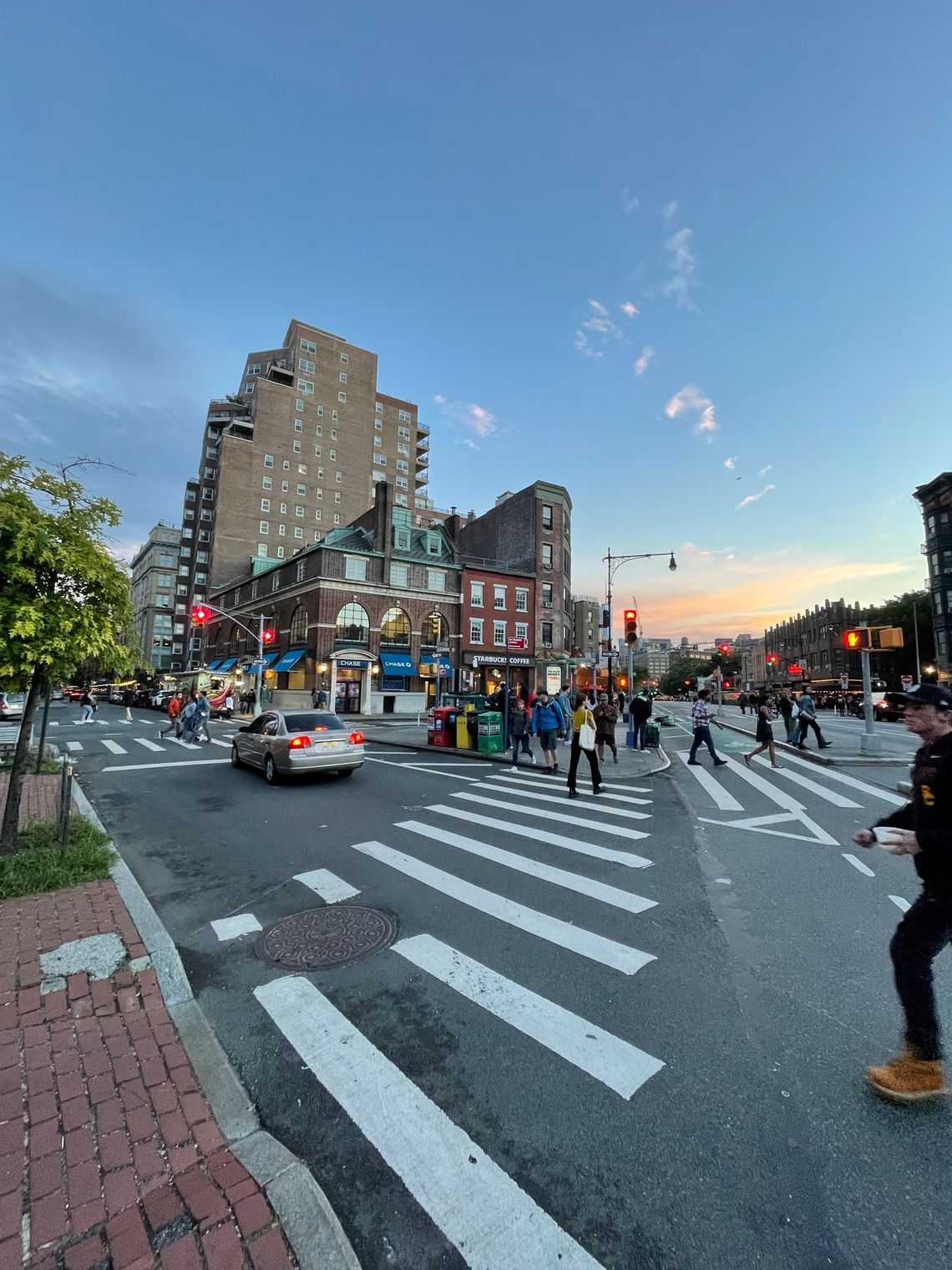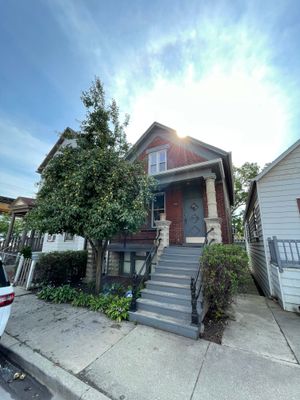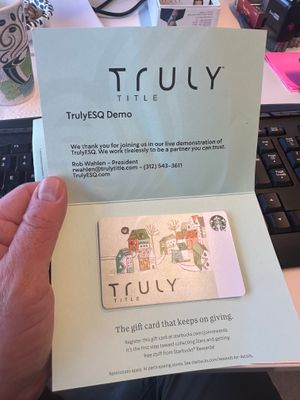
The Chicago way.
The Life Cycle of a Real Estate Transaction in the Chicago Market
Inception
Chicago (February 23, 2023) - A real estate contract is born out of the interests of a seller and buyer to conjugate over a parcel of real estate. The performance is private; but once the contract is inked the very next phrase a committed buyer or seller will hear is "next...you will need an attorney." All local forms of contract provide for an "attorney review" period. The contract also obligates the seller to provide (and pay for) an Owner’s Policy of title insurance produced for the protection of the purchaser; which humbly translates to “sellers' choice" in our state. Realistically, then, the real estate attorney converts this authority into a choice they make with their seller to place an order with a title insurance company. The terms of the contract are infinitely negotiable except for the purchase price, which also means no matter the form of contract being used the attorney/title company relationship can and will very likely be preserved.
Infancy
We have a myriad of ways in which to receive an order for title insurance, but due to a long standing industrywide technological disadvantage (think Flintstones), the method with the lowest barrier has been to forward the contract in whatever form it is received by our attorney customer. This sometimes comes the same Monday the sellers’ attorney receives it; that is, in advance of any continuing negotiations over the terms of the contract; OR, it comes after all the terms have been negotiated and all contingencies lapsed making the contract firm with inspection, prior sale and clear to close approvals completed.
Toddler
The contract itself does not involve a title company the way it does in Colorado or Texas. Title is not a party to the contract. We “scrape” basic details from the contract and store it in a title production software, or TPS, platform; with the appropriate tasks triggered to generate a path for that transaction from order entry to a successful conclusion (and a home closed) with a policy issued to the insured. First task for us? Search the pubic records.
First Homework Assignment
We generate a data package which consists of a land chain, name searches, plat and tax results with pertinent and applicable recorded documents together with an examination form. In our market the search is provided to our supported attorney agent who holds a producer's license with an underwriter. Practically speaking, once the homework assignment is completed we follow their direction to issue a title commitment in the producer's name and for their specified underwriter.
Algebra Class
On an attorney agent ("AA") resale transaction the AA is the “title insurance agent” (215 ILCS 155/3)(3) and therefore the AA has a formal relationship with the underwriter. We are considered to be a “servicer” only, providing search, commitment typing and policy remittance, retention and reporting. Every AA will have an executed Servicing Agreement with us so that we may act as servicer of the “supported agent."
AP Calculus
The magic sauce in the Chicago market is that the consumer benefits by having access to legal representation in the purchase or sale of their home while the attorney agent also delivers an enhanced consumer protecting title product. By “determining the insurability of title” as defined and complying with RESPA section 2607(c)(1)(B)(1), further clarified in reference to “core title services” in the class action appellate court decision in Chultem v. Ticor Title Insurance Company(2) and set forth in the Title Insurance Act (215 ILCS 155/)(3), the attorney agent earns a share of the title premiums.
The completion of the examination worksheet is considered to be sufficient evidence of the AA’s act of “services actually performed” in exchange for their premium split, among other things (like title clearance). We take the completion of the worksheet and the marked up commitment at closing to be the AA’s instruction to prepare the commitment and the policy (or policies) conforming to their examination.
The product of this collaboration is a 2016 ALTA form of title commitment with a list of Schedule B-I requirements and Schedule B-II exceptions, and an acceptably cleared 2006 ALTA form of title policy (or policies) issued to the insured(s) at the conclusion of escrow. In this environment any production or examination by a servicer would fail to meet the threshold for “services actually performed” by the AA. Therefore, there is no scheduled or pending tasks at our title department or back office plant until the AA returns their completed examination worksheet (or their marked up title commitment post-closing).
Snowball
The next phase in the Life Cycle of the Real Estate Transaction in the Chicago Market is the introduction of the lender’s requirements to amend the title commitment to ready it for their loan underwriting review. This could come in the form of a forwarded email from the AA (again, think Flintstones), or a phone call, or if our past relationship is memorable, the lender may have a direct line into our title department to request their needed policy changes. This is where a CPL would be generated, and the lender might also open the collaboration necessary to start the Closing Disclosure preparation with our escrow department.
First Kiss
The local market demands that we have a significant footprint of closing locations around town so that the attorneys can convene a table funded closing at a location near the property and suitable to the closing participants. We take scheduling requests from the seller’s attorney’s office, and we are an insignificant participant in the conversation about timing, location or availability. The scheduling of the closing triggers a task to start the fee collaboration process. This includes figures and back up documents like the lender's preliminary Closing Disclosure ("CD"), payoff letters, paid assessment letters, the broker’s commission statement, and any necessary invoices to be paid at closing. This is also where we would seek the survey for review, if applicable. Once the final CD is approved and the lender sends the loan document package, we are ready for closing.
Graduation
We are a table funded state, which means the sellers, buyers, attorneys and agents come to our conference room to settle the transaction at one prescribed, synchronous timeslot. Our closers typically sit outside the closing room, or if that is not possible, then at an end of the table nearest the door so they can run to check, scan and copy closing documents. Our closers are there to deliver and collect documents, provide a cursory review of the title affecting contributions, like the Warranty Deed, and to perfect the distribution of executed documents and funds with the authority of the attorneys present and the lender, who is very likely not present. Checks are printed on a remote printer and wires for payoffs and proceeds sent. The title producer, or AA, “marks up” or “waives” the requirements that are satisfied on the commitment. These “waivers” are considered binding on the underwriter and are taken as instruction to the servicer (us) to produce the final policy in conformity to their written instruction.
The closer is responsible for the delivery of originals to the lender and to the clerk for recording, as well as scans of all applicable closing documents needed to complete the transaction. If an incoming check is received, the closer brings it back to the office for remote deposit. The file is marked “closed” in our TPS and our next task is to record the deed and mortgage, if applicable, and to verify the recordings are properly indexed at the county.
The Marriage Ceremony
The final step in the Life Cycle of the Real Estate Transaction in the Chicago Market is the completion and distribution of the title policies. This is completed by an associate in Illinois.
(1) RESPA section 2607(c)(1)(B) provides that the payment of a fee “by a title company to its duly appointed agent for services actually performed in the issuance of a policy of title insurance” shall not be considered a prohibited payment.
(2) The appellate court’s published opinion in Chultem v. Ticor Title Insurance Company is here and is seminal in our highly specialized attorney driven market.
(3) The Illinois Title Insurance Act (215 ILCS 155/) is here.




!["Mortgage rates hit highest [level] in 16 years."](/content/images/size/w300/2022/10/F75E69F9-6EE7-4C72-AC43-342CA53D8961.jpeg)

